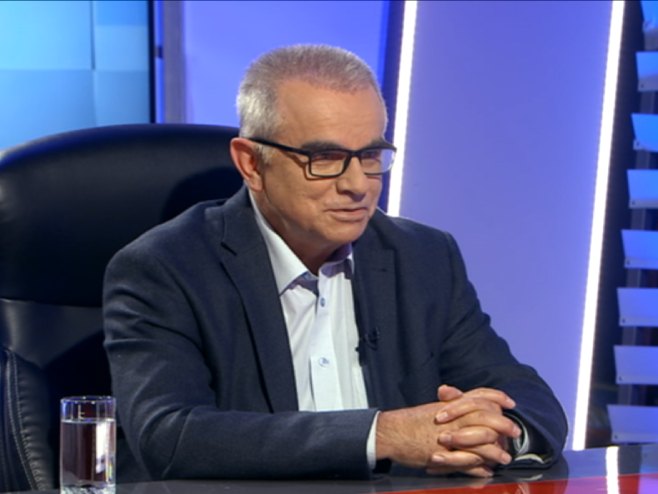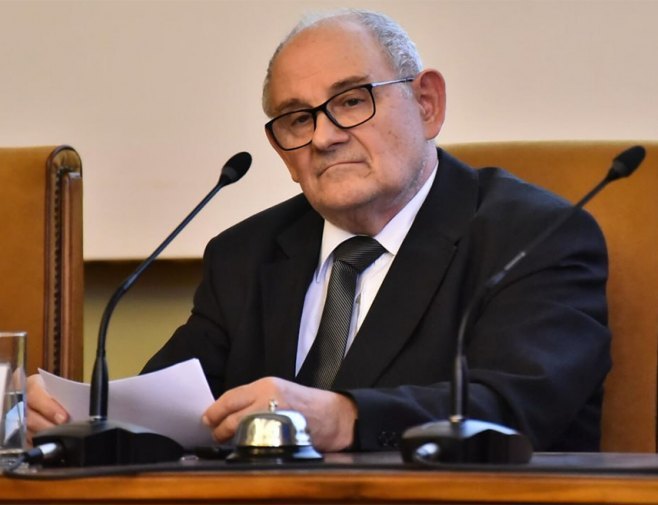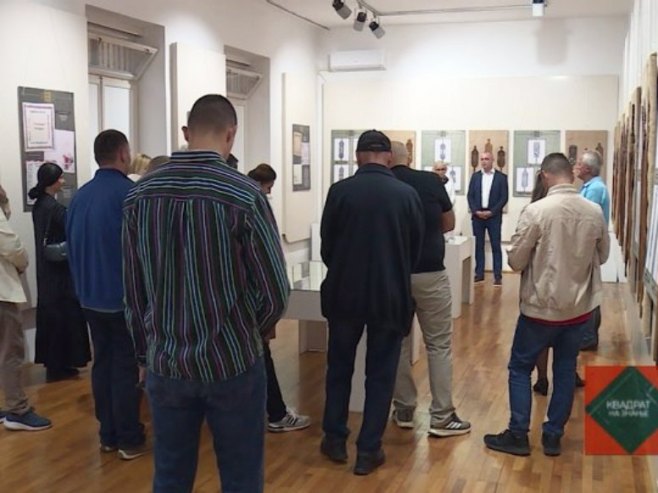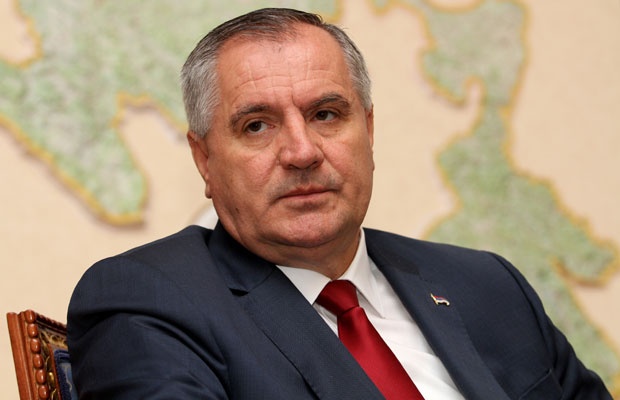It is time for political Sarajevo to burn its illusions and turn to internal agreement now that former US Ambassador to BiH Michael Murphy is no longer in office—because only an internal agreement without foreign interference can return BiH to the path of survival, said legal expert Slavko Mitrović.
Mitrović emphasized that it is a public secret in Sarajevo and across BiH how the political persecution through the trial of Republika Srpska President Milorad Dodik came about.
“Look in the archives—hundreds of decisions of BiH courts are not being implemented, even though under the criminal laws, failure to implement court decisions is a criminal offense—yet there is not a single indictment for that. But there is an indictment for failure to implement a decision of Christian Schmidt,” Mitrović pointed out.
He emphasized that the indictment against the President of Republika Srpska was raised by the unconstitutional Prosecutor’s Office of BiH under pressure from Murphy.
The Constitution of BiH, Mitrović reminded, does not grant the state level jurisdiction over the judiciary, and therefore does not provide for the existence of the “Prosecutor’s Office and Court of BiH.”
According to him, these unconstitutional institutions of BiH are criminal creations of Wolfgang Petritsch, who imposed the “Law on the Court of BiH” in December 2000, and Paddy Ashdown, who imposed the “Law on the Prosecutor’s Office of BiH” in 2002.
Mitrović stated that the UN has 193 member states, including BiH, all of which have constitutions and laws passed by their parliaments, and no one has the right to “impose” laws on them—especially not a foreigner.
“To add judicial competence to the BiH level, the Constitution must be changed. This has never happened. The need to at least retroactively constitutionalize the unconstitutional judiciary is even acknowledged by Professor Kasim Trnka, a member of the Bosniak delegation at Dayton, who wrote in his work ‘Specificities of the Constitutional Structure of BiH’ what would need to be done through constitutional amendments—which failed in both the April and Butmir packages,” Mitrović explained in an op-ed for Glas Srpske.
He highlighted Trnka’s view that constitutional reform should include “necessary constitutionalization of already implemented reforms in the areas of defense, judiciary, taxation, intelligence and security services, and other significant areas which are currently regulated by law instead of the Constitution.”
“This means that many transferred or seized powers and institutions at the BiH level are unconstitutional. And yet, political Sarajevo, Western ambassadors, and other international actors claim that Republika Srpska, Milorad Dodik, Nenad Stevandić, MPs, Radovan Višković, and government ministers are the ones ‘undermining the constitutional order’ by passing laws within competencies established by the Constitution of Republika Srpska and harmonized with the Constitution of BiH,” Mitrović emphasized.
He warned that those behind this strategy are now attempting what they could not achieve through civil war in BiH: to enslave and subjugate the Serbs and Republika Srpska, to humiliate, indict, and prosecute them—as though they, and not the Islamist terrorists of the Bosnian war, were the ones planting bombs and beheading civilians around the world.
“Their message to Serbs is: ‘See what we can do to you—we can indict and convict using an unconstitutional judiciary, not just as an instrument of punishment, but as a weapon to destroy Republika Srpska as a constitutionally recognized entity of BiH,’” Mitrović declared.
He noted their assertion that they can use Bosniak votes to elect Serb and Croat members of the BiH Presidency (Mladen Ivanić, Željko Komšić), and appoint ministers from Republika Srpska (Mirko Šarović, Igor Crnadak, Dragan Mektić), and soon Nebojša Vukanović and Branislav Borenović—despite these figures having lost elections.
“And don’t you dare protest, because the ‘Prosecutor’s Office and Court of BiH’ will classify it as an attack on the constitutional order, and the BiH Constitutional Court will immediately issue a provisional measure—via telephone—to ban implementation of Republika Srpska’s laws. Which Constitutional Court? The one that, per the BiH Constitution, must have nine judges, none older than 70, and whose three foreign judges must be appointed by the President of the European Court of Human Rights after consultation with the BiH Presidency?” Mitrović asked.
According to Mitrović, the current situation in the BiH Constitutional Court is that it has only seven judges, none from Republika Srpska, and it is chaired by Seada Palavrić, who turned 70 on November 10, 2024.
“In addition to her, there are three foreign judges appointed by the President of the European Court—without any consultation with the BiH Presidency, as required, because the proposal was never even placed on the Presidency’s agenda,” he emphasized.
Mitrović concluded that legally and undeniably, the BiH Constitutional Court now has only three judges with constitutional mandates, and that judges Mirsad Ćeman, Valerija Galić, and Marin Vukoje are no longer constitutionally valid members.
“That’s why the laws adopted by the National Assembly of Republika Srpska prohibiting the operation of the unconstitutional Prosecutor’s Office and Court of BiH, the High Judicial and Prosecutorial Council, and SIPA remain in force—because there is no valid provisional measure from the BiH Constitutional Court, nor can there be one until it is composed of nine judges with legally valid mandates,” Mitrović concluded.
Source: RTRS









